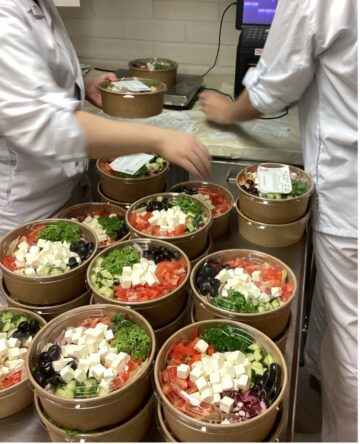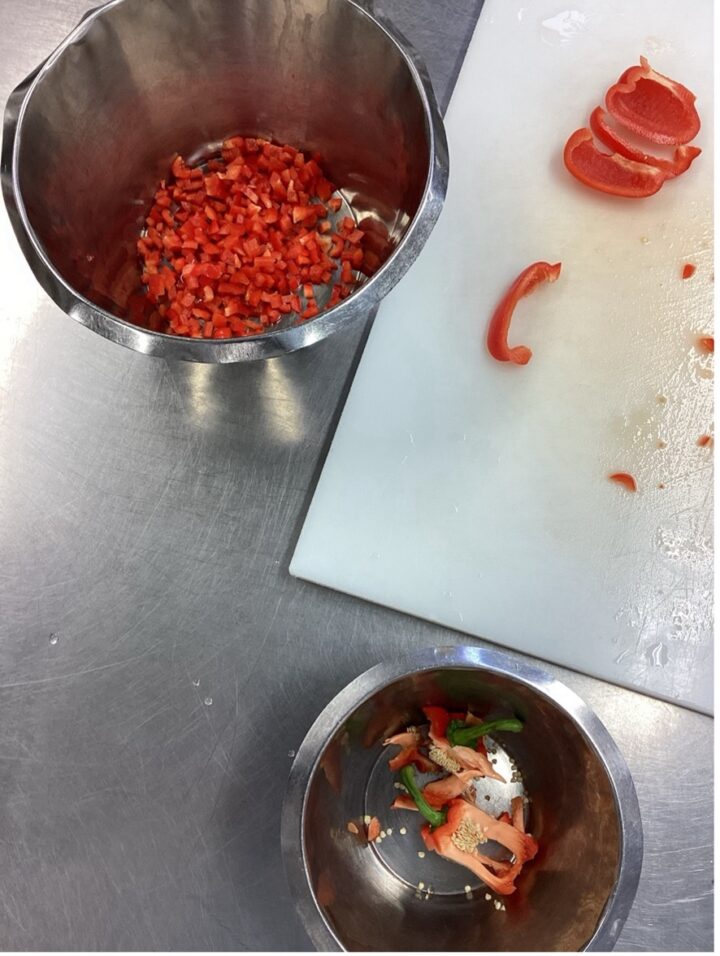Balancing Learning and Sustainability in TAI Kitchens
In October 2024, Ecem observed kitchen training sessions at TAI to better understand how classroom kitchens integrate sustainability and waste reduction practices into daily routines. Over two visits, she followed both advanced and first-year students, with a focus on ingredient preparation, labeling, and waste management. The observations revealed how instructors coordinated the flow of information and responsibilities—bridging between students, the inventory coordinator, and the shop—while embedding sustainability principles in teaching. One notable example was the introduction of a SmartKitchen scale, which not only measured preparation waste but also encouraged students to reflect on their practices by turning waste tracking into a learning exercise. These insights highlighted both the challenges and opportunities of balancing skill development, operational efficiency, and sustainability in a teaching kitchen environment.


